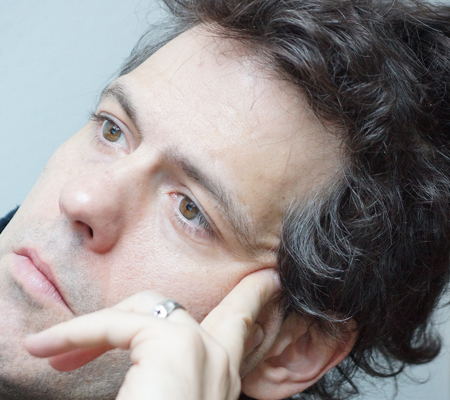By Ian Brennan
Pollstar
August 14th, 2019

The Good Ones
After having released two critically acclaimed albums – and the first original music ever widely distributed internationally in the language of Kinyarwanda – The Good Ones from Rwanda has been invited to open Academy and Grammy award-winning Irish singer-songwriter Glen Hansard’s fall tour. What for any U.S. artist (and most European bands as well) would be the opportunity of a lifetime. For The Good Ones, instead, it is riddled with doubt.
The first step in gaining entry to the U.S. entailed submitting a 150-page petition for their visas. That process was thankfully approved, but must be followed by an in-person interview in their own country. That in-person interview – which in the past was largely a formality – has become more complex for musicians from select countries because of the “extreme vetting” that some of them now face. This recently implemented element can turn what is typically a six- to eight-week procedure for visas into one that can go on for over six months and without any easy ability for anyone involved to forecast when a determination might actually occur.
This added twist makes the already Herculean task of plotting an international tour all the more arduous. The denial of visas – even for scores of artists at “world music” cornerstone Peter Gabriel’s 36th annual WOMAD Festival in the UK last year – can leave gaping holes in any lineup.
These sorts of frustrations and risks can then only lead talent bookers to playing it more safely. Even those experimental enough to look for an “exotic” element on a festival or season bill are rendered more likely to instead go for the low-hanging fruit of expats or first generation immigrant artists.
The majority of artists on the planet lack a basic right. Not food or clean water (though, these are clearly often an issue as well). But the freedom to move.
It is easy for those of us with power passports like the U.S., UK, France, and Japan, to remain unconscious of how privileged our ease to journey and tour is.
The liberty to travel is guaranteed by Article 13 of the United Nations’ Universal Declaration of Human Rights. But these privileges are applied ever so selectively. The luxury to literally become airborne is something that even the possession of international documents from all but a handful of elite countries doesn’t automatically nor easily grant.
Yet, the value that artists bring from other countries is hard to overestimate.
As one example, what is today known as a South African vocal tradition (as featured on Paul Simon’s 16-time platinum-selling Graceland album) was triggered largely by American Orpheus McAdoo, Jr. He has been referred to as “the grandfather of World Music” and his 1890, smash-success, globe-trekking tour ran in South Africa for over 18 months straight and its influence continues to radiate invisibly there today.
Much of the visa scrutiny of foreign musicians originated from the fear that immigrants would “steal” jobs from American musicians (i.e., a violinist from Italy getting a seat in a big band or orchestra for cheaper than an America union member). But with the songwriter-as-performer, popular music revolution that followed in the wake of Bob Dylan and The Beatles, the threat that immigrating musicians posed has all but been eliminated outside of the classical music world.
We can name a handful of artists that have been terrorized by their fans or associates (Selena, Dimebag Dave, and most infamously, John Lennon), but not one artist that themselves was a terrorist.
Anytime I hear of an upstart artist from a privileged nation canceling last-minute a headlining slot at a festival or national television appearance, my heart aches. To discard so easily their own good fortune is the antithesis of “the show must go on” tenet that the entire live entertainment industry is founded upon.
On The Good Ones’ first trip ever out of Rwanda, their third member, Mahoro, concealed that his right foot had suffered a compound fracture days before departure. Instead, he danced onstage repeatedly – while smiling ear-to-ear – since he was unwilling to be denied such a treasured opportunity.
The fact that The Good Ones members are genocide survivors (who will be visiting the U.S. to help commemorate the 25th anniversary of the Rwandan genocide) makes their cultural contribution even more timely and precious. That both members are married, middle-aged men that have four young children apiece – not to mention that leader Adrien lives on the very farm he was born on – all but ensures that they pose no risk of fleeing.
In this era of rising global xenophobia, now more than ever is a time not to fortify, but open our borders, embrace diversity, and champion cross-cultural artistic exchange for the diplomatic enrichment, heightened empathy, understanding, and cooperation that only it can bring. It is far from irrelevant to reflect on the fact that Joseph Goebbels, the Nazi Party’s “Minister for Public Enlightenment and Propaganda,” demanded “racially pure” art and this led to the burning of classic works by Picasso, Dali, and Max Ernst.
Ian Brennan is a Grammy-winning music producer (Tinariwen, The Good Ones [Rwanda], Ramblin’ Jack Elliott, Ustad Saami [Pakistan], Zomba Prison Project) and author. The Good Ones’ forthcoming third album features collaborations with members of Wilco, TV on the Radio, Sleater-Kinney, My Bloody Valentine, and Fugazi.





